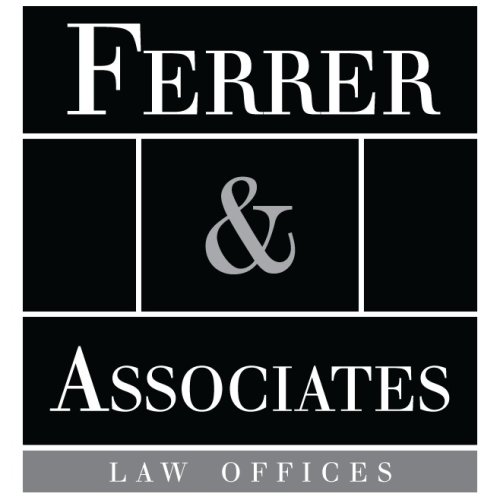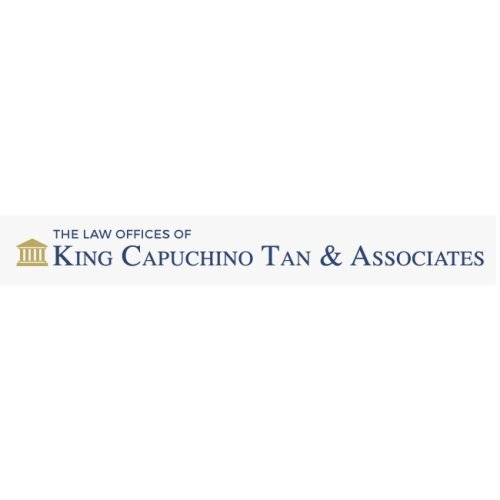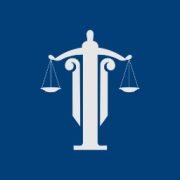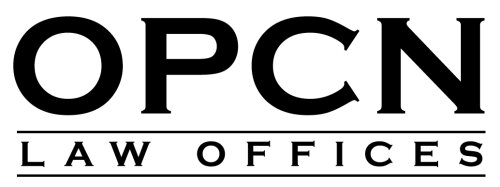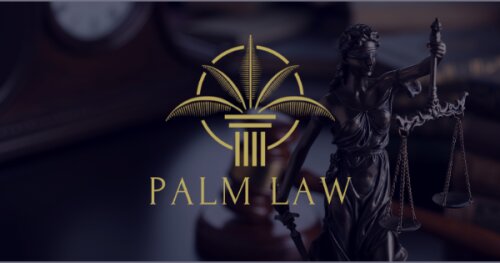Best Water Law Lawyers in Quezon City
Share your needs with us, get contacted by law firms.
Free. Takes 2 min.
List of the best lawyers in Quezon City, Philippines
About Water Law in Quezon City, Philippines
Water Law in Quezon City is guided by a combination of national statutes and local ordinances dealing with the rights, distribution, management, and protection of water resources. The law aims to regulate the use of water for domestic, agricultural, commercial, and industrial purposes while ensuring that water sources are adequately protected from over-extraction and pollution. These laws are designed to balance the needs of individuals, businesses, and the environment, and often involve interplay between national law, such as the Philippine Water Code (Presidential Decree No. 1067), and local regulations enforced by the Quezon City government and local agencies.
Why You May Need a Lawyer
You may need a lawyer specializing in Water Law in Quezon City for various reasons. Disputes often arise concerning water rights, such as entitlement to use water from rivers, wells, or public sources, or conflicts over access between neighboring landowners. Lawyers are also often consulted when businesses need permits for water extraction or disposal, or when communities or individuals face issues related to water contamination. Developers and homeowners may require legal assistance when building structures that might affect watercourses or use municipal water connections. Environmental advocates, on the other hand, may seek legal support to challenge illegal water use or pollution. Understanding your legal rights and obligations is critical when dealing with the complexities of water regulation.
Local Laws Overview
In Quezon City, Water Law is shaped primarily by the Philippine Water Code, local government ordinances, and various implementing rules and regulations. Key aspects include:
- The National Water Resources Board (NWRB) issues water permits and regulates water usage, but local implementation and administration are often handled by the Quezon City government through its Engineering Department and Environmental Protection and Waste Management Department.
- There are specific local ordinances addressing illegal extraction of groundwater, pollution of water sources, and unauthorized connections or tapping into water utilities.
- Quezon City coordinates closely with agencies like Manila Water Company and the Metropolitan Waterworks and Sewerage System (MWSS) in monitoring and maintaining public water supply services.
- Ordinances may also impose sanctions for infractions such as illegal discharge of waste into water bodies, unauthorized bund construction, or failure to follow water conservation measures during drought.
- Protection zones have been identified especially near La Mesa Watershed and other vital sources, limiting developments and other activities within these areas in line with environmental protection objectives.
Frequently Asked Questions
What is Water Law and how does it affect Quezon City residents?
Water Law is the body of regulations governing the use, management, and protection of water resources. In Quezon City, it impacts how residents access, use, and conserve both public and private water resources, and sets out the legal framework for resolving disputes and ensuring safe water supply.
Do I need a permit to use groundwater from a private well?
Yes, under the Philippine Water Code and enforced by local authorities, you must obtain a permit from the National Water Resources Board before digging and operating a private well, as well as correspondence with relevant Quezon City departments.
Who is responsible for the maintenance of public water pipes in Quezon City?
Public water pipes are primarily maintained by Manila Water Company and MWSS. However, the city government assists in monitoring, reporting, and resolving cases involving damaged infrastructure within its jurisdiction.
How are water pollution violations handled?
Violations such as illegal dumping or contaminating water sources are subject to penalties under both national and local laws. Complaints may be filed with the city government or environmental agencies for investigation and enforcement actions.
Can communities initiate legal action against water polluters?
Yes, both individuals and organized communities can initiate complaints or file legal action against parties found to be polluting water sources. Legal remedies include administrative complaints, civil actions for damages, or seeking injunctions to halt polluting activities.
What should I do if I receive notice of illegal water connection?
You should immediately consult with a legal specialist or the local water service provider. Illegal connections can result in penalties, disconnection, and charges. Resolving the matter promptly and through proper legal channels is advised.
Is it possible to change or transfer a water permit in Quezon City?
Water permits can, in certain circumstances, be transferred or amended, subject to the approval of the National Water Resources Board and local authorities. Requirements depend on the type of permit and intended purpose of the water use.
What are the penalties for violating water-related ordinances in Quezon City?
Penalties vary but may include administrative fines, disconnection of water service, civil liabilities, and in severe cases, criminal charges, especially for environmental violations or theft of water.
How can businesses ensure compliance with water laws?
Businesses must secure the necessary permits for extraction, use, and wastewater disposal, implement water-saving measures, and regularly monitor discharge to prevent pollution. Consultation with legal professionals is advisable to ensure strict compliance.
Are there special rules for developments near water sources or watersheds?
Yes, developments near protected areas like La Mesa Watershed are strictly regulated. Permits, environmental compliance certificates, and close coordination with the local government and DENR are mandatory before any development can proceed.
Additional Resources
If you need more information or assistance regarding Water Law in Quezon City, you may reach out to these resources:
- Quezon City Engineering Department - for local ordinance information and water infrastructure concerns
- Quezon City Environmental Protection and Waste Management Department - for issues on water pollution and conservation
- National Water Resources Board (NWRB) - for permits, licensing, and regulatory guidelines
- Manila Water Company and Metropolitan Waterworks and Sewerage System (MWSS) - for public water service-related matters
- Department of Environment and Natural Resources (DENR) - for developments near protected areas or potential environmental concerns
- Integrated Bar of the Philippines - for locating qualified legal practitioners in Water Law
Next Steps
If you need legal assistance concerning Water Law in Quezon City:
- Identify the specific nature of your water-related concern, such as permit issues, disputes, or allegations of violation.
- Gather all relevant documents, including titles, correspondence, notices, and any permits or contracts.
- Contact the appropriate local government office or agency to seek administrative guidance or file initial complaints if required.
- If your matter is complex or not resolved administratively, consult a legal professional specialized in Water Law, preferably licensed and experienced in Quezon City cases.
- Prepare to discuss your complete situation with your lawyer, so legal options and remedies can be clearly identified.
Understanding your rights and responsibilities and consulting the right experts will help you navigate the complexities of Water Law effectively.
Lawzana helps you find the best lawyers and law firms in Quezon City through a curated and pre-screened list of qualified legal professionals. Our platform offers rankings and detailed profiles of attorneys and law firms, allowing you to compare based on practice areas, including Water Law, experience, and client feedback.
Each profile includes a description of the firm's areas of practice, client reviews, team members and partners, year of establishment, spoken languages, office locations, contact information, social media presence, and any published articles or resources. Most firms on our platform speak English and are experienced in both local and international legal matters.
Get a quote from top-rated law firms in Quezon City, Philippines — quickly, securely, and without unnecessary hassle.
Disclaimer:
The information provided on this page is for general informational purposes only and does not constitute legal advice. While we strive to ensure the accuracy and relevance of the content, legal information may change over time, and interpretations of the law can vary. You should always consult with a qualified legal professional for advice specific to your situation.
We disclaim all liability for actions taken or not taken based on the content of this page. If you believe any information is incorrect or outdated, please contact us, and we will review and update it where appropriate.



